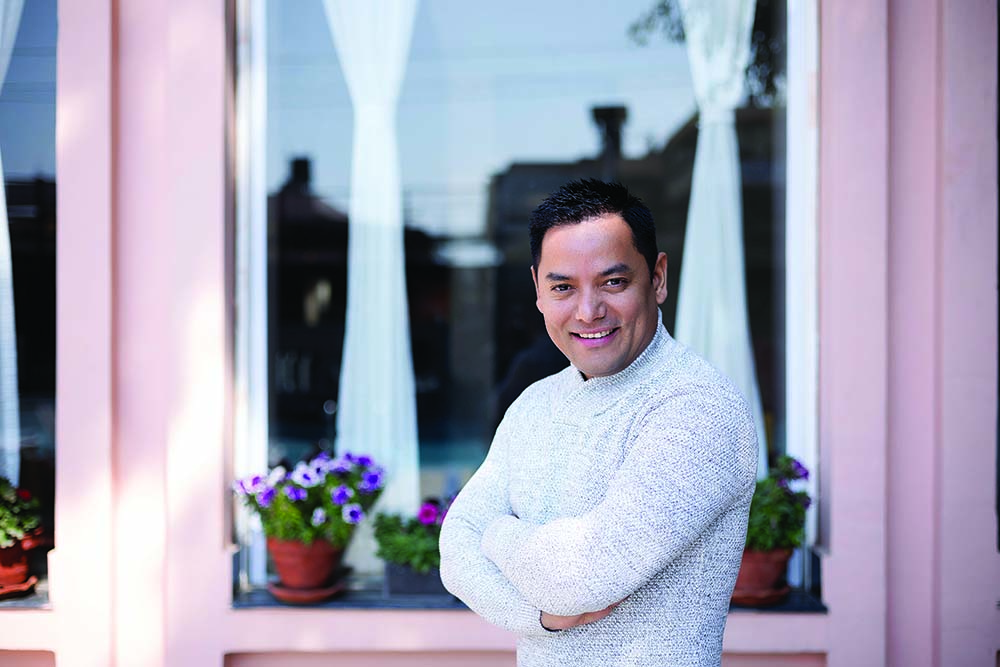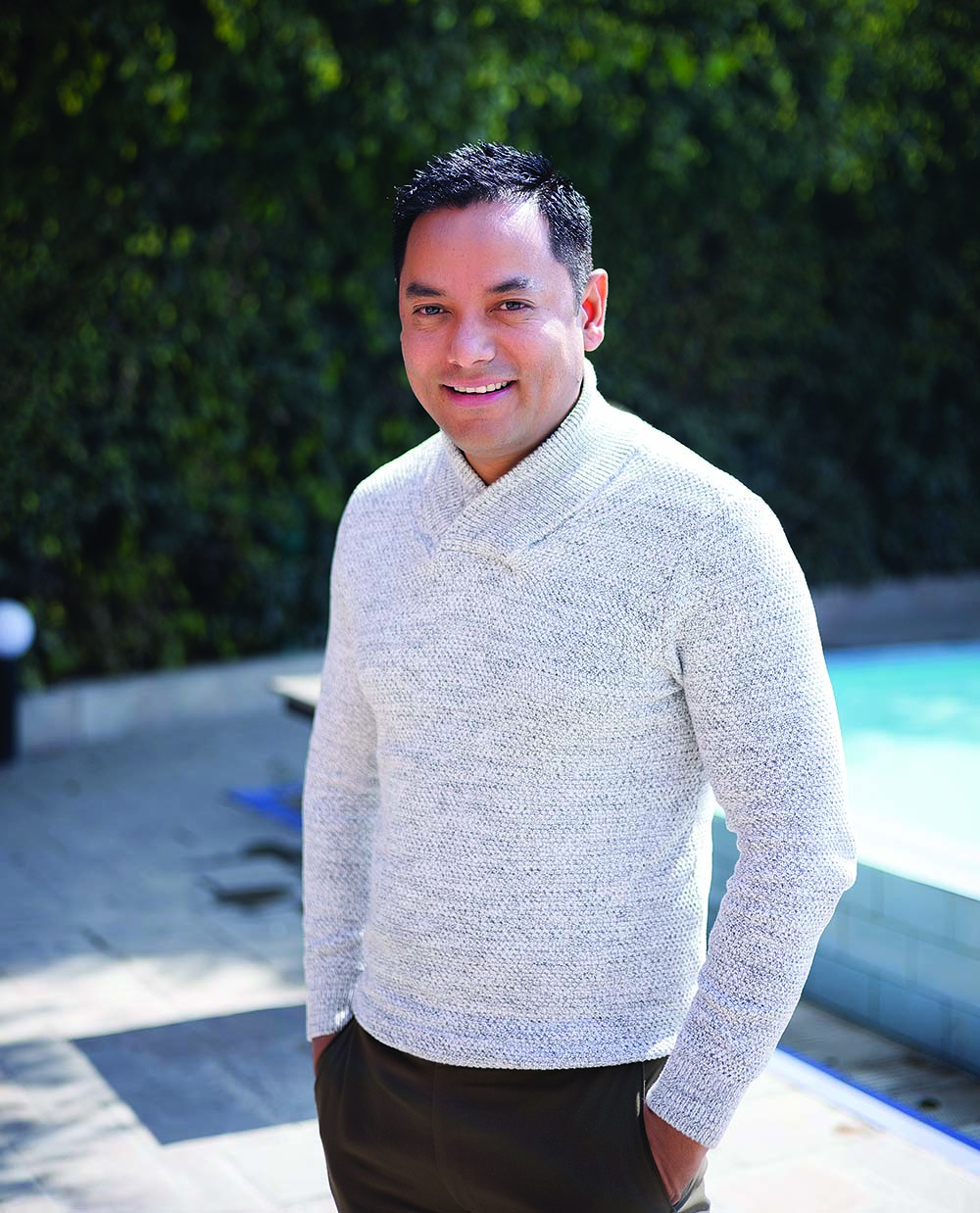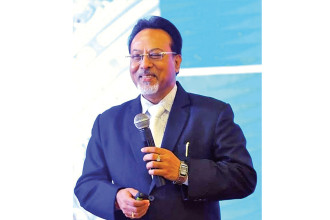
Swotantra Pratap Shah, Global President, Federation of International Nepali Youth Entrepreneurs
The Federation of International Nepali Youth Entrepreneurs was officially inaugurated in Kathmandu on December 3, 2021, by former President of Nepal Dr Ram Baran Yadav. The federation has been set up by young non-resident Nepalis from various parts of the world as a platform where young entrepreneurs come together, share ideas, and build a meaningful network. In this issue of Business 360, we caught up with Swotantra Pratap Shah, Global President of Federation of International Nepali Youth Entrepreneurs, who was in Nepal recently for the inauguration of the federation, to learn more about FINYE and what it aspires to achieve. Shah, who went to Australia in 2004 as a student, lives in Brisbane and owns five restaurants in the city. He is also involved in real estate and in 2015 opened a travel agency. Among his other business interests are education consultancies in various cities of Nepal, Bhutan and the Philippines. Excerpts of an interview with Shah:What was the fundamental purpose of setting up the Federation of International Nepali Youth Entrepreneurs?
I have been involved in the Non-Resident Nepali Association for the last 13 years in various capacities and even served as the Vice President of NRNA Australia for three consecutive executive terms. In fact, I did contest for the President of the Australian chapter of the association but lost by five votes. During this journey at NRNA, I felt it would be a good idea if we could have an organisation of young Non-Resident Nepali entrepreneurs where we could share knowledge, information and help each other out in times of need. Not only for those residing abroad, I knew it would be a good platform for budding business persons in Nepal too. There are times, for instance when an entrepreneur in Nepal may be doing extremely well and then wants to promote his/her products overseas, or even set up a business in a foreign country. The usual route they would have to go through is to get in touch with family and friends and request them because there was no organisation to facilitate that process. FINYE bridges that gap. What also happens at times is someone in Nepal or the United Kingdom may have a brilliant business idea but lacks the resources or may be someone has the funds to invest but has no idea what to do. This platform can bring them together. That’s how this idea came about and I started talking to friends across the world. Everyone I spoke to was very receptive about it and we started opening chapters in various countries.Could you tell us about some of the activities you have undertaken?
At present, we have set up chapters in Australia, the United Kingdom, the United States, China and the Middle East. We are growing pretty fast and all the chapters have planned some event or the other. Recently, we started a talk series called Yuwa Udhyami on YouTube which basically aims to inspire youth entrepreneurs in Nepal. What we are trying to do is get established business persons who initially faced massive challenges when they started out to talk about their entrepreneurial journey. We also have a networking event lined up in Australia in March. Similarly, the other national executive committees in different countries are planning events. In fact, in November we plan to organise a Global Youth Entrepreneurs Summit in Nepal and we are looking forward to having about 300 participants from various countries across the world. We also are requesting Nepali youths to participate in the meeting.What are the criteria to become a member of FINYE?
As of now, we do not have any criteria set for people to join our organisation. We are still working on it. I recently held a meeting with members of the Nepalese Young Entrepreneurs’ Forum and I got to know that there are certain criteria to join the forum. What we are trying to do at FINYE is to have as little restriction as possible so that we can reach out to the mass. If there are too many restrictions, we will be limiting the numbers. We do not want FINYE to be an exclusive club type of organisation. At present, we do not even have an age bar. Anyone can join us whether they are established or have just begun their business provided they are of good character. In terms of membership, we are offering corporate and general membership.As the global president what is your agenda for the organisation?
I want to do a lot of things through FINYE but whatever we do will always be a collective effort. We are in the initial stages at the moment and our members are pitching several ideas like promoting Nepali products overseas. We want to provide a platform to market Nepali products globally. For instance, a couple of months back our chapter in the United States held an event for the launch of Goldstar Shoes and in Japan too there is a similar event lined up. There are so many wonderful Nepali products like tea, coffee and handicrafts but people manufacturing them may not have the right business connections to promote their products abroad. That is where we plan to step in and help out. The other area we want to work on is promoting startups in Nepal. There are young people here with brilliant ideas but lack the necessary funds, so we are planning to establish a fund for the purpose. Meanwhile, there are many Nepalis who have spent 10-15 years abroad but want to start something in Nepal but may not know how to get things done here. So, our platform will facilitate such people to open businesses in Nepal. We want to connect people. By encouraging investments into Nepal, we will be able to generate more employment which is the need of the hour.You have businesses in Nepal and in Australia. What are the differences in doing business?
Setting up a business in Nepal and in Australia is totally different. There are a lot of obstacles here and the problems start from the very first day itself. The number of documents required and the processes that one has to go through here is mind-boggling. It actually demotivates people from starting anything. In Australia, we can open a company and even shut it down from the comfort of our homes. The only thing required is a computer and internet connection. Even paying taxes is so difficult in Nepal. If you know somebody with the right connections, you can get your work done in a couple of hours but if you don’t then you will be running around in circles for days or even weeks at times. The process to acquire a loan is also very complicated in Nepal and without collateral, it is next to impossible to be able to obtain one. However, back in Australia, we can avail loans in terms of our business transactions and also based on our ideas. It is time that the government make the process to open businesses in Nepal more comfortable if it really wants to attract investments. Just talking about attracting investments and how they have made the process easy will not suffice, the ground reality is totally different.
There are different definitions of what actually constitutes a startup. How do you define it?
At FINYE, we have different modules through which we work with businesses that are just about starting. If someone comes up with an idea that is workable, we give them a certain amount of money. For example, if the total cost of the project is Rs 2 lakhs then we could give 50% and we do not charge any interest. But when the business reaches a certain level we ask the concerned person to return the money. The other way we work is to provide 50% and we don’t need the person to return it but we do monitor how the fund is being utilised. The third way we are contemplating is a lot of our friends have the money and are looking for ideas. So, if someone comes up with an idea, we will invest the total cost and monitor how that person is working, guide that person as well, and after a certain number of years we want the person to return the money with interest. At the moment we are also thinking about giving Rs 50,000 to Rs one lakh to 5-10 people in each province in Nepal. We are calling for ideas.Is there any government policy or rule you want to see changed for the business climate to become better to attract investment?
I think the government has to really open up. If we want Nepal to develop further, we have to open our minds and hearts. There are a lot of restrictions here. You can invest here but taking back the returns is so burdensome. That is one of the main reasons why many people are not willing to come and invest in Nepal. If it is going to be difficult to take back your own money, then how can we convince investors to come to Nepal. The government might have its own logic but we have to open up like Singapore, Australia, the United States, among others. The reason these countries are developed is because they are open minded. Anybody can go and invest there. They actually welcome investors and you can take back your money any time you want to. There are a lot of opportunities in the tourism sector here, and many people are interested. However, at the end of the day, the ‘doing business’ climate has to be appropriate.What is your opinion about dual citizenship for NRNs and how will it benefit Nepal and the NRNs?
I think dual citizenship will really benefit Nepal for many reasons. For those of us who went abroad quite some time back it is not a problem because even if the government does not provide this facility, we will come. But dual citizenship is very important for the second generation, those who were born in foreign countries. When a Non-Resident Nepali can hold a Nepali passport it keeps that person connected to their motherland and they can bring in not only investments but also the technology and skills they have acquired. I still cannot fathom why the government here is so hesitant to allow us to get dual citizenship. The only thing I can state is the moment we have this facility the amount of investment from Non-Resident Nepalis will increase substantially and it will be a win-win situation for both us and the country. READ ALSO:
Published Date: March 23, 2022, 12:00 am
Post Comment
E-Magazine
RELATED Face 2 Face





